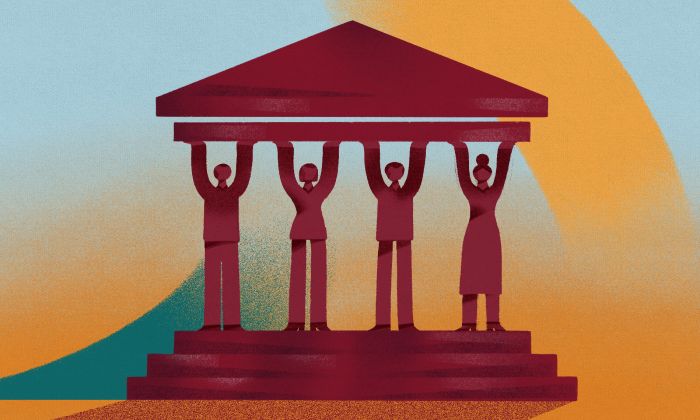How India’s Family Businesses Are Reinventing Themselves
How India’s Family Businesses Are Reinventing Themselves
As India’s business landscape evolves, the role of family enterprises—long the bedrock of Indian industry—is undergoing a quiet but profound transformation. During the Leadership for a Rising India event, hosted by Egon Zehnder and HDFC Capital, a fireside chat featuring two of India’s most respected business leaders—Harsh Mariwala, Chairman of Marico, and Deepak Satwalekar, former MD of HDFC Limited and HDFC Standard Life—offered a masterclass in how to navigate this change.
Moderated by Sonny Iqbal, a founding partner of Egon Zehnder India and a global authority on family business governance, the session tackled the complex interplay between family ownership, professional management, and long-term value creation.
The Central Question: Family First or Business First?
The Central Question: Family First or Business First?
Cutting straight to the matter, Harsh Mariwala asked, “Does the business come first, or the family?” And he supplied his own answer: “There’s no one-size-fits-all answer. But in a highly competitive environment, I believe the business must come first.”
Mariwala’s conviction is rooted in personal experience. When he founded Marico in 1990, he made a deliberate decision to be the only family member involved in the business. Over the next two decades, he built a professionally managed organization, culminating in a bold and rare decision in 2013: stepping down as Managing Director and appointing a non-family CEO.
“It was one of the hardest decisions I’ve made,” he admitted. “My wife was upset. My son was upset. But I had to put the organization’s interest above all else.”
Succession: A Test of Courage and Clarity
Succession: A Test of Courage and Clarity
Succession in family businesses is often fraught with emotion, hierarchy, and unspoken expectations. Mariwala’s story offered a rare example of how to do it right.
“When my Head of Marketing came to me and said, ‘I want to be MD,’ I hadn’t planned to step down,” he recalled. “But he was talented, ambitious, and committed. My son wasn’t ready. So I took it to the board.”
The board supported the transition, but Mariwala didn’t stop there. He formalized the change with a written agreement outlining what decisions he would be involved in as Chairman—and what he would not. “My hands are off, but my mind is on,” he said. “I do skip-level meetings twice a year. I stay connected, but I don’t interfere.”
Governance: Not a Checklist, But a Culture
Governance: Not a Checklist, But a Culture
Deepak Satwalekar, who has served on the boards of Wipro, Asian Paints, and Infosys, emphasized that governance must be a value system—not a compliance exercise.
“If you want good governance, it has to start with the promoter,” he said. “It’s not about ticking boxes. It’s about believing in transparency, accountability, and the long-term.”
He shared a powerful insight: “The role of an independent director is not just to protect minority shareholders. Sometimes, it’s to protect the promoter from themselves.”
Mariwala agreed, adding that governance must be practiced from day one, not just when a company goes public. “Culture is built early. If you start taking shortcuts, it becomes very hard to change later.”
He illustrated this with a small but telling example: “I use a small office space in the company for my philanthropic work. I pay rent for it. It’s not about the money—it’s about the message.”
Professionalization Without Alienation
Professionalization Without Alienation
One of the most nuanced parts of the discussion centered on how to professionalize without alienating family members. “Let’s not assume that family members aren’t professionals,” Satwalekar cautioned. “If they have the qualifications and the drive, they should be given a fair chance. But they must be held to the same standards.”
Mariwala echoed this, sharing how his son, after initially stepping away from Marico, built his own track record in investing. “He’s now on the board and is being groomed to take over as Chairman. But he has to earn it.”
The Power of the Board
The Power of the Board
Both leaders emphasized the importance of a strong, empowered board. “For me, the board is a source of competitive advantage,” said Mariwala. “I go to them with dilemmas, not just decisions.”
Satwalekar added, “The board must have the courage to challenge the promoter—and the promoter must have the humility to listen.”
He recounted a boardroom anecdote where promoters would hold private meetings with the CFO and CEO after board meetings. “I told them—if you’re asking as shareholders, disclose it publicly. If you’re asking as board members, invite the whole board. You can’t have it both ways.”
Long-Term Thinking in a Short-Term World
Long-Term Thinking in a Short-Term World
The conversation closed with a powerful reminder that long-term thinking is not just a strategy—it’s a mindset.
“In the early years of HDFC Life, we told our team: we don’t want to be the biggest or the fastest—we want to be the most respected,” said Satwalekar. “And once you’re respected, everything else—growth, profit, valuation—will follow.”
Mariwala agreed: “If you want to build something that lasts, you need to build trust. With your people, your board, your investors. That’s what makes a company resilient.”
A Blueprint for the Future
A Blueprint for the Future
As the conversation came to a close, one central message from the stage lingered: India’s family businesses are at a crossroads. The choices they make today—about leadership, governance, and succession—will deeply affect not just their own futures, but the future of Indian enterprise.
In a country where family businesses continue to shape the fabric of the economy, the insights from this conversation felt especially timely—offering practical guidance for leaders navigating the complexities of legacy, governance, and growth.





